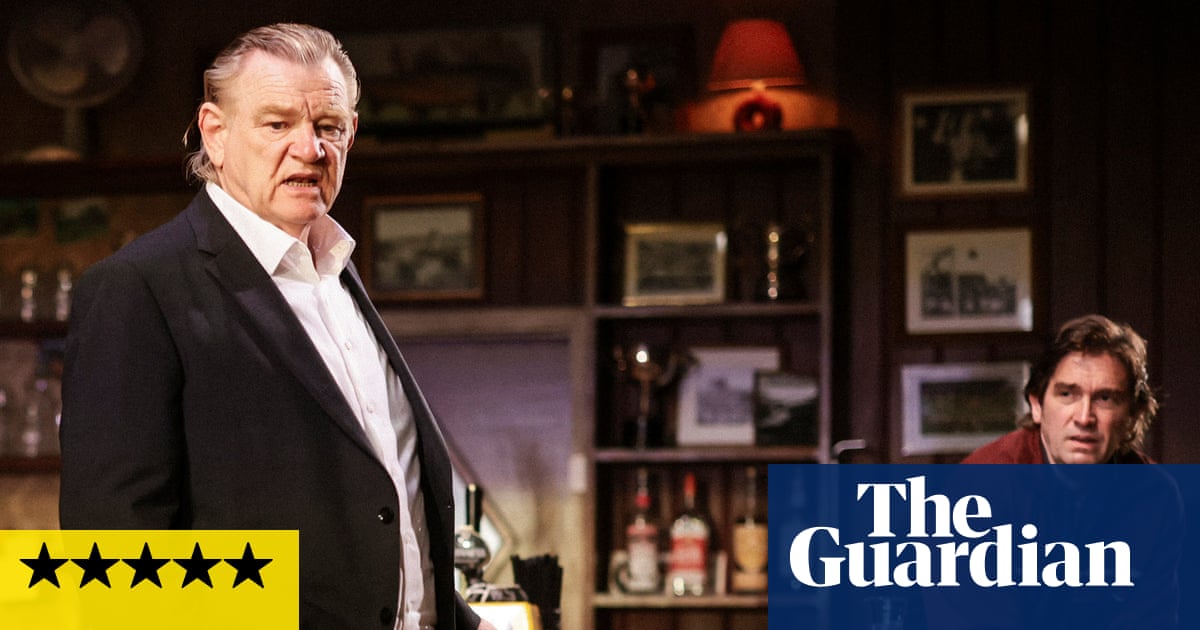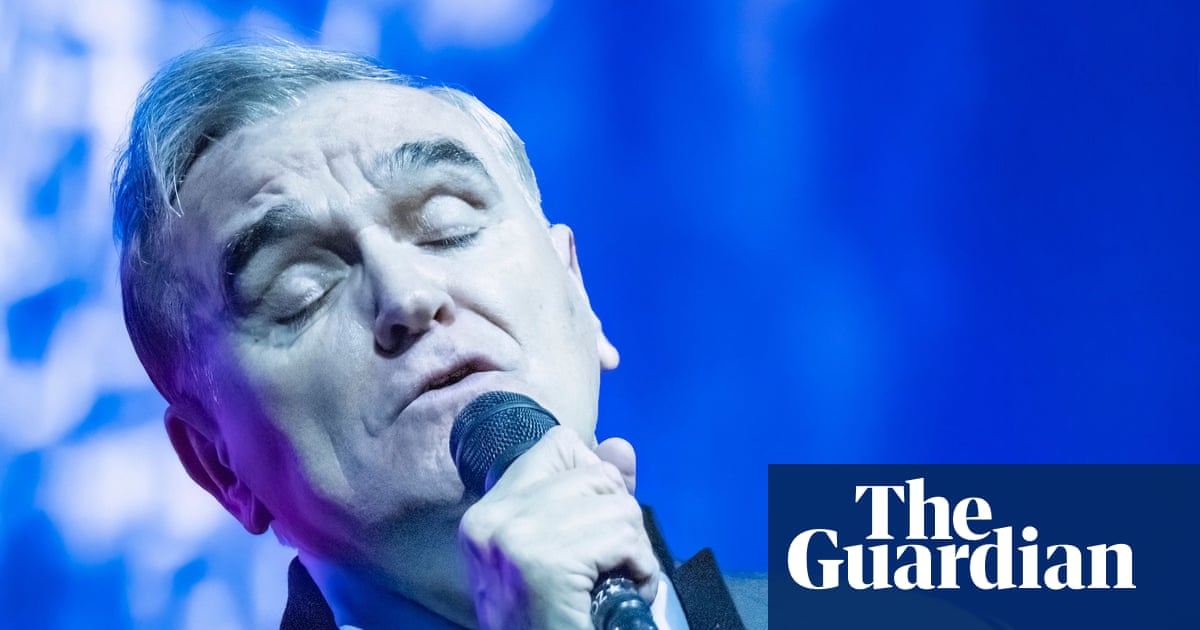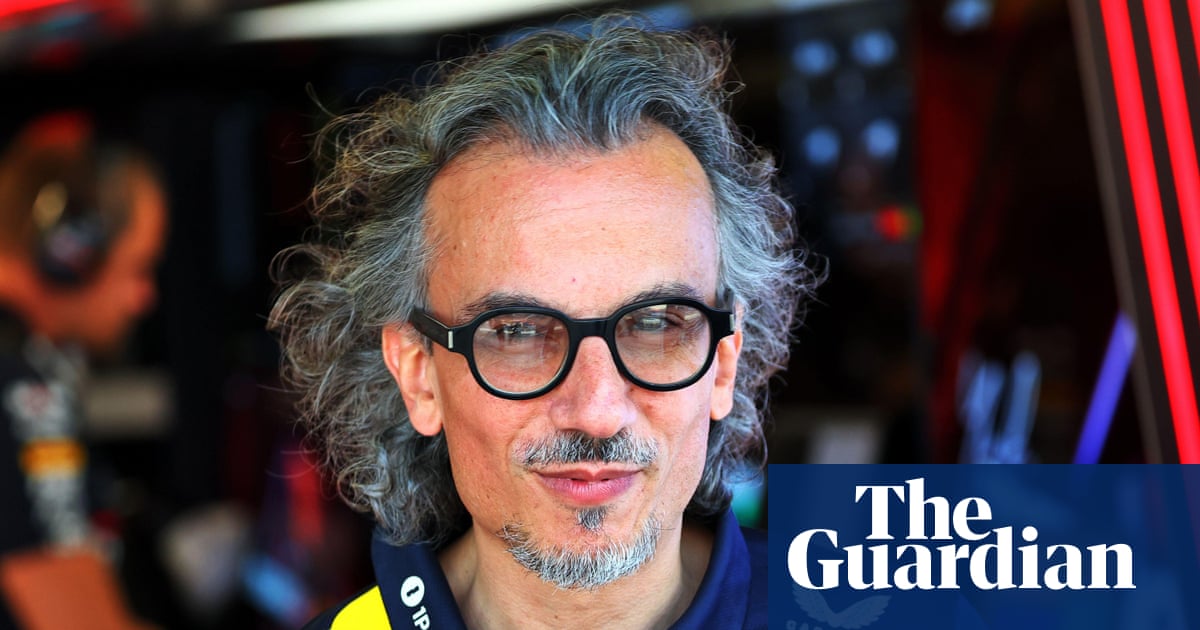Rarely can a balcony have caused such a kerfuffle. But the row about the extramural staging of Don’t Cry for Me Argentina in Evita at the London Palladium is a sign of its director’s increasing celebrity status. Indeed I’m tempted to rephrase a number from an earlier Andrew Lloyd Webber and Tim Rice musical: “Jamie Lloyd Superstar, Do you think you’re what they say you are?” What, in short, does it tell us about our theatrical culture that this puckishly likable director has become a figure famed on both sides of the Atlantic?
His beginnings, as a recent Vogue feature pointed out, were relatively modest. He grew up in rural Dorset, was turned on to live theatre by seeing Michael Jackson on tour and attended the Liverpool Institute for Performing Arts. But, right from the start, there was something there. The first production of his that I saw was The Caretaker, which in 2007 transferred from the Sheffield Crucible to what was then the Tricycle in London. Two things made it original: the use of a creepy score by Ben and Max Ringham to give the play a film noir feel and the insistent presence of Nigel Harman’s Mick reminding us that the work is about the fraternal bond between him and the brain-damaged Aston, which Pinter’s intrusive hobo fails to understand.
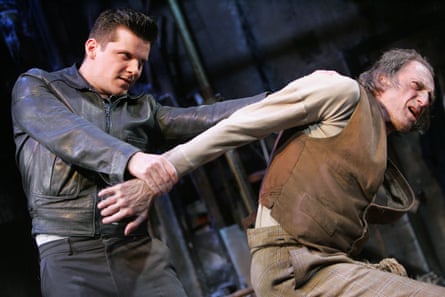
Over the next few years I followed Lloyd’s career with interest and was struck by several things. One was his trust in actors and his ability to extend their range. There was Zawe Ashton in the title role in Oscar Wilde’s Salome at Hampstead theatre dancing to a ghetto-blaster; Douglas Hodge in Inadmissible Evidence at the Donmar turning John Osborne’s disintegrating hero into a quasi-Beckettian figure; and Katherine Kelly, best known for Coronation Street, playing Kate Hardcastle in She Stoops to Conquer, with a rustic graciousness.
For a young director, Lloyd had a rare faith in the language and setting of classic plays: that production of Oliver Goldsmith’s comedy at the National was robustly true to the late-18th century just as his Duchess of Malfi at the Old Vic was unequivocally Jacobean. Without distorting authorial intention, Lloyd also made you look again at a work you thought you knew. By casting Elena Roger, who had played Evita and Piaf, as the heroine in the Stephen Sondheim-James Lapine musical Passion at the Donmar in 2010, Lloyd changed the whole balance of the show: Roger’s sickly Fosca, instead of being an ugly duckling, was a lonely woman embodying the power of unconditional love.
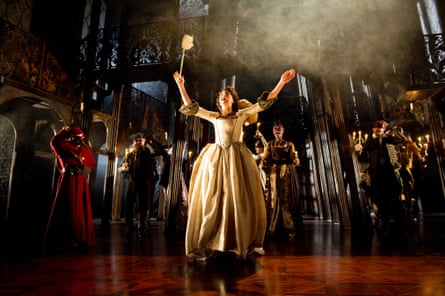
Significantly, much of Lloyd’s best early work was done when he was an associate at the Donmar working under the tutelage of Michael Grandage. Even when he branched out and formed the Jamie Lloyd Company in 2013 there was still much to admire. I may have disliked his Doctor Faustus, which became a pointless satire on the lure of showbiz stardom, but there was good work with James McAvoy, including Macbeth and Peter Barnes’s The Ruling Class, and notable revivals of Pinter’s The Hothouse and The Homecoming.
It was, however, a six-month season in 2018-19 of all of Pinter’s one-act plays that for me was proof of Lloyd’s quality. For a start, the season demolished the myth that Pinter’s shorter pieces are inferior to his full-length plays: what became abundantly clear was that, whatever the chosen form, Pinter was preoccupied with analysing the roots of power. Lloyd also attracted an astonishing range of actors: Antony Sher for One for the Road, Tamsin Greig for Landscape and A Kind of Alaska, Martin Freeman and Danny Dyer for The Dumb Waiter, Jane Horrocks and Luke Thallon for The Room.
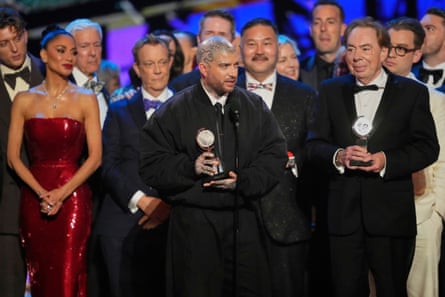
Lloyd’s own productions were often revelatory. Having myself wrestled with the difficulty of directing Party Time, in which a wealthy elite remain oblivious to a round-up of dissidents, I was staggered by Lloyd’s courage in having the characters simply line up facing the audience in a cocktail party from hell. Even more impressive was his production of Betrayal, with Tom Hiddleston, Zawe Ashton and Charlie Cox, which stripped the action of circumstantial detail and reminded us that there are three sides to an emotional triangle: in other words, that the deceived partner is always present in the imagination.
Betrayal transferred to Broadway and was nominated for numerous Tony awards, since when Lloyd’s star has been in the ascendant on both sides of the Atlantic. While that is welcome, it also means that in the last six years Lloyd has forged his own particular style: a hi-tech minimalism that involves abandonment of scenery, heavily miked actors and ubiquitous cameras. It worked well for his version of Sunset Boulevard partly because Nicole Scherzinger gave a dazzling performance and partly because the musical is about the narcissism of the film industry. As the cameras tracked every gesture of the actors, I was reminded of Billy Wilder’s quip on seeing the original stage production: “It’ll make a good movie.”

But similar techniques were used less happily in Lloyd’s production of Romeo and Juliet. The idea that for their first encounter Tom Holland’s Romeo should be alone on stage and Francesca Amewudah-Rivers’s Juliet should be partying in the theatre foyer struck me as absurd. Lloyd’s belief in amplified sound also had fatal consequences in his Drury Lane Tempest. Instead of the tonal variety of the human voice we got an homogenised sound in which, with the exception of Selina Cadell’s Gonzalo, it was difficult to tell who was speaking. I thought back wistfully to the 1957 production of The Tempest at that theatre in which the unaided voices of John Gielgud, Alec Clunes and Robert Harris had a distinct and beautiful resonance.
Lloyd is a man of undoubted talent, and technology has a place in modern theatre. But he is in danger of falling back on a formula and, without a strong producer behind him, succumbing to the modern cult of the director. Ideally, theatre is a coalition of all the talents in which writer, actor and director are all working to the fullest possible realisation of the work in question. I look forward to seeing how Evita plays at the London Palladium but we should remember that Everybody’s Talking About Jamie is the title of a musical and not a recipe for theatrical success.
-
Evita is at the Palladium, London, until 6 September

 2 months ago
81
2 months ago
81




